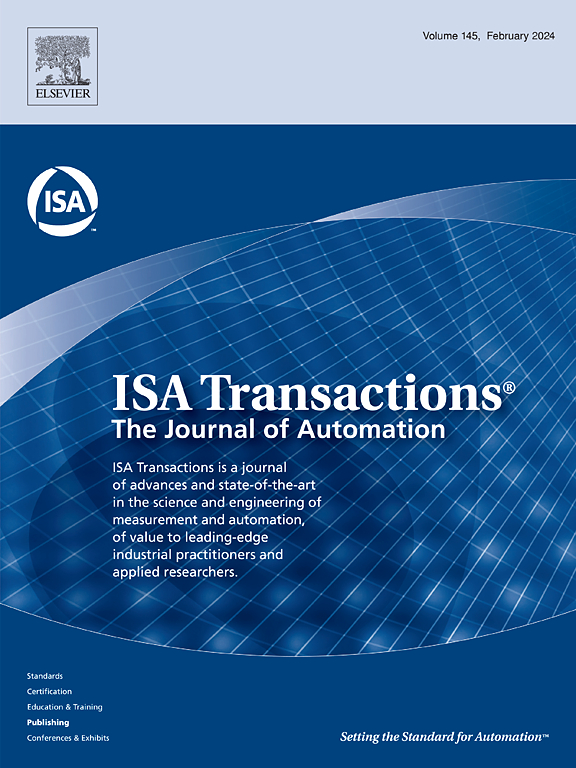基于隶属函数法的正T-S模糊系统松弛事件触发跟踪控制。
IF 6.3
2区 计算机科学
Q1 AUTOMATION & CONTROL SYSTEMS
引用次数: 0
摘要
本文讨论了正非线性系统的基于采样数据的事件触发跟踪控制。事件触发机制自然会导致系统模型的隶属函数与模糊控制器的隶属函数不匹配。同时,正约束和跟踪行为增加了系统分析的复杂性,使分析结果趋于保守。如何在保证良好的跟踪性能的同时实现积极的和事件触发的跟踪控制已成为一个挑战。为了解决这一挑战,首先建立了正T-S模糊模型来表征正跟踪非线性系统。随后,构造了一种新的Lyapunov-Krasovskii泛函,该泛函考虑了由事件触发机制引起的跟踪误差和传输延迟。此外,利用分段线性隶属函数(PLMFs)放宽了分析结果的保守性。然后,为了保证系统的正性并获得PLMFs的近似误差,提出了一种外部约束来处理基于采样数据的事件触发机制导致的不匹配的隶属函数。最后,通过数值算例和双链坦克实例验证了所提方法在减少通信资源的同时获得了良好的跟踪性能。本文章由计算机程序翻译,如有差异,请以英文原文为准。
Relaxed event-triggered tracking control of positive T–S fuzzy systems via a membership function method
In this paper, the sampled-data-based event-triggered tracking control for the positive nonlinear system is discussed. The event-triggered mechanism naturally causes a mismatch between the membership functions of the system model and the fuzzy controller. Meanwhile, the positive constraint and tracking behavior increase the complexity of system analysis and bring conservative analysis results. How to achieve positive and event-triggered tracking control while ensuring good tracking performance has become challenging. To address the challenge, firstly, the positive T–S fuzzy model is established to characterize the positive tracking nonlinearsystem. Subsequently, a novel Lyapunov–Krasovskii functional is constructed, which takes into account the tracking errors and transmission delays induced by the event-triggered mechanism. Furthermore, the piecewise linear membership functions (PLMFs) are used to relax the conservativeness of analysis results. Then, to ensure the system positivity and obtain the approximation errors of PLMFs, an outer constraint is proposed to handle the mismatched membership functions caused by the sampled-data-based event-triggered mechanism. Finally, the proposed approaches are demonstrated to achieve good tracking performance while reducing communication resources through a numerical example and a two-linked tank practical example.
求助全文
通过发布文献求助,成功后即可免费获取论文全文。
去求助
来源期刊

ISA transactions
工程技术-工程:综合
CiteScore
11.70
自引率
12.30%
发文量
824
审稿时长
4.4 months
期刊介绍:
ISA Transactions serves as a platform for showcasing advancements in measurement and automation, catering to both industrial practitioners and applied researchers. It covers a wide array of topics within measurement, including sensors, signal processing, data analysis, and fault detection, supported by techniques such as artificial intelligence and communication systems. Automation topics encompass control strategies, modelling, system reliability, and maintenance, alongside optimization and human-machine interaction. The journal targets research and development professionals in control systems, process instrumentation, and automation from academia and industry.
 求助内容:
求助内容: 应助结果提醒方式:
应助结果提醒方式:


